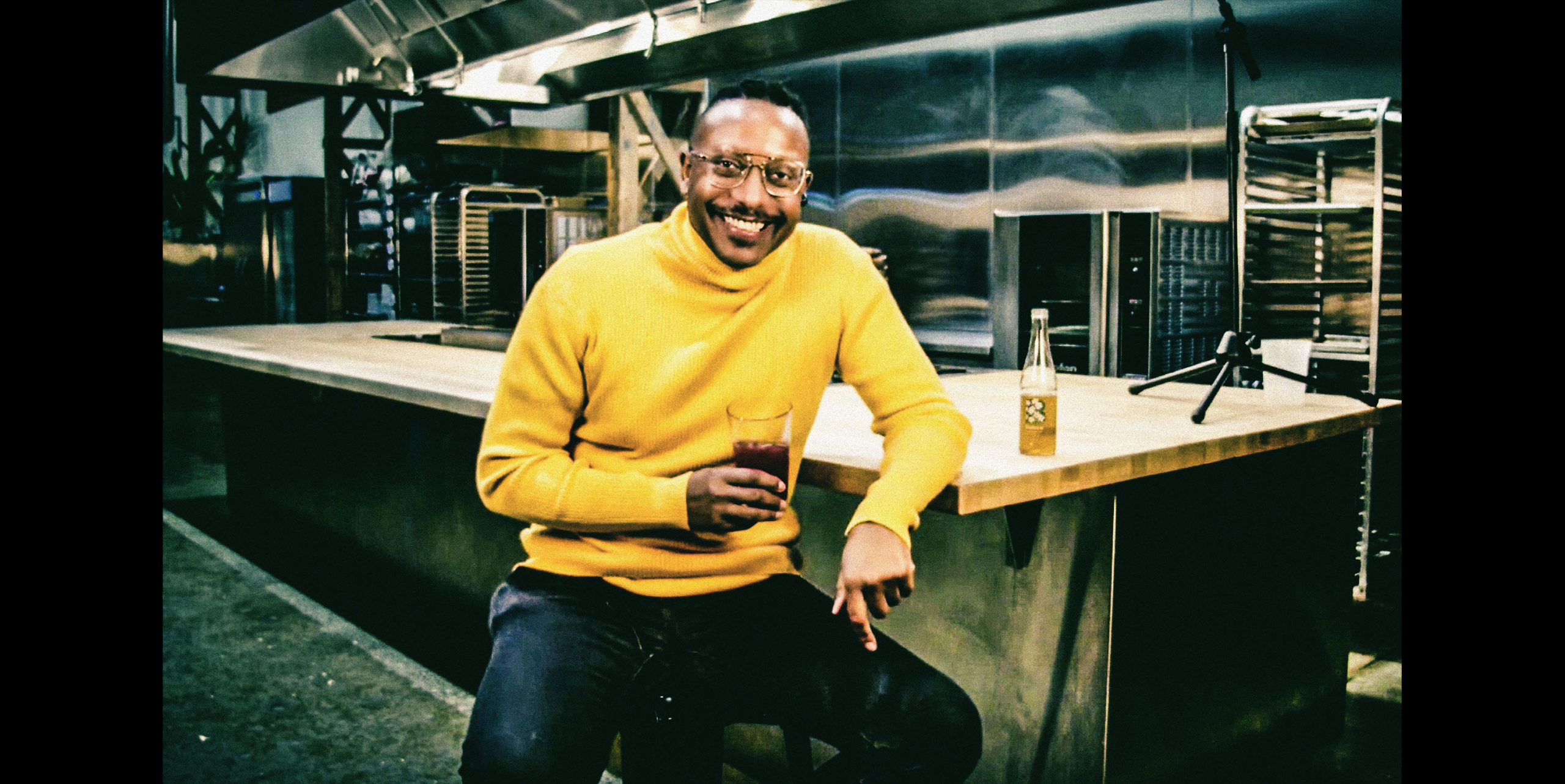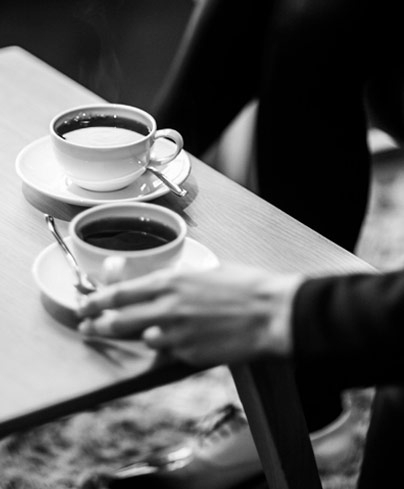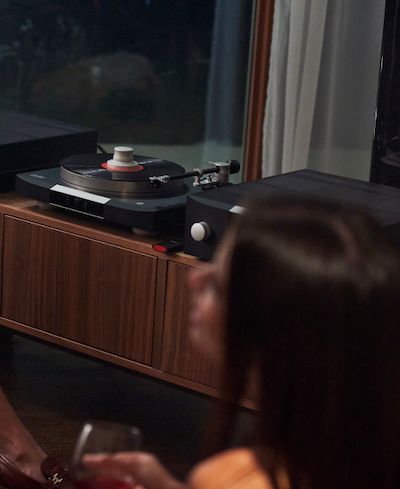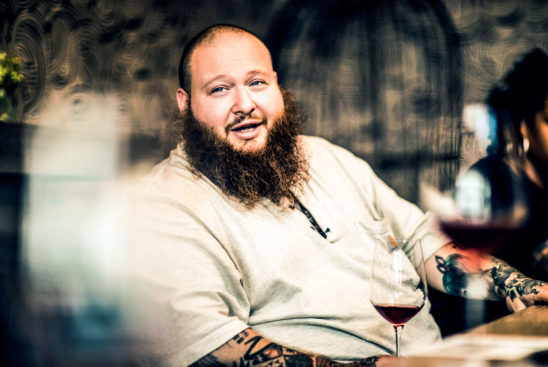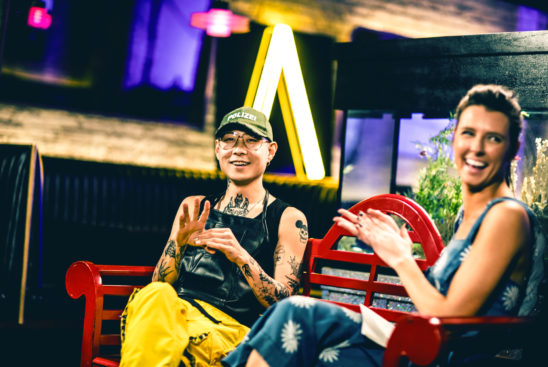Gregory Gourdet
"Top Chef" Star
You’re a leader in creating inclusive and safe workplaces with an objective to rethink restaurant leadership and culture. Tell us about this mission at Kann Winter Village.
Kann is designed as a fully 100 percent COVID-friendly, socially-distanced outdoor restaurant. We have 10 yurts, so each party gets their own yurt. We specifically created this experience for the pandemic, to be outside. As we know, restaurants shut down last March, and the restaurant industry is one of the hardest-hit industries … My heritage is Haitian, and Kann means sugarcane. It’s inspired by sugarcane vendors in Haiti who run down the street with wheelbarrows full of sugarcane, screaming, “Kann kale, kann kale.” That’s one of my earliest memories when I lived in Haiti as a kid … [This past year] we saw Black Lives Matter, and our industry also went through a huge reckoning. A lot of industry workers, people involved in the civil rights and social justice movements, restaurant workers and Blacks in America felt that restaurants were places where they didn’t feel safe and felt mistreated. I worked at a really big and busy restaurant, and I got criticized myself. I believe that we can fix anything through communication and effort. As I thought about what type of restaurant I wanted Kann to be, I knew that representation would be extremely important. I’m inspired by global BIPOC flavors. It’s something that I’m really passionate about, both eating, studying and learning about, so I really wanted the staff to represent that. The bulk of the issues coming up were from women who felt mistreated in the restaurant industry. It became abundantly clear to me that if I were to do a concept, I really wanted to tackle these issues head-on.
You’ve gone above and beyond to create a safe and healthy dining experience. From the outside, it looks like you rose to the challenge this past year. What were you really feeling during 2020?
Everything is glossy on the outside if you put enough work into something. I’ve always been an overachiever and a really hard worker. I surround myself with really passionate, dedicated people who have the same kind of work ethic as I do. Tia, my best friend and partner here, has done an amazing job helping me be the operations director of this establishment. But honestly, I was actually okay last year. My recovery is something that I talk about quite often. That’s one of the reasons why we’re drinking a zero-proof beverage this evening. I had a really, really rough patch kind at the end of my [time] living in New York City. I had gone to culinary school in New York, started my formative years of working in the kitchens, and I just started partying way too hard. And by year six and seven, things were quite dark. I moved to Portland in 2009 and got sober here, so Portland is an extremely amazing place for me. I love it here.
How did that experience help you navigate 2020?
It completely changed my life. Going through all of that and having that knowledge, courage and understanding that I’ve been through my worst and darkest days really helped me get through last year. To watch people continually dying from COVID, the issues with police, all my friends closing their restaurants and former cooks saying they had awful experiences working for years… all of that was a lot. But for me, I knew that if I just held my head down, kept plugging away and finished my projects I would be okay. So here we are. It’s a new year. Things in this country hopefully are going to start to get better. The restaurant industry is still pretty much decimated, so it’s really important to me that I do what I can. I tapped into all my resources to get this place open and stretched out my hiring pool as far as I could to get the team that I have today. I think it’s important that we try to do the best that we can, use our resources as best as we can and help each other as much as possible. Personally, I know that I will always be okay. No matter what life throws at me, I will always be okay because I truly feel like I’ve been through the worst that I ever will be. That’s my attitude on life and it takes a few hard years and coming out of it to make you realize that whatever happens to you is a moment in time and you can get through it.
Was there ever a moment you wanted to give up?
No. Once I verbally commit to something, I usually loop people in. I’m a very dedicated, committed person so there was definitely no going back. We actually have some national partners for this restaurant because it is a temporary program, so there really was no looking back. There were a lot of steps that I could have taken to make things a lot easier. I could have relied on some people that I’ve worked with in the past who are dependable, reliable and loyal. But again, it would become a situation where the same people are getting opportunities all the time. I really felt it was important for me to give other people opportunities. This is my direct response to Black Lives Matter and the industry reckoning– trying to give different people a platform and sharing the resources that I have with as many people as possible. There are definitely some shortcuts I could have taken, but I’m happy that I didn’t because we’re here today and things are going pretty well.
What do you want to say to people in the restaurant industry who are still having a hard time?
It’s hard. It’s really, really hard. Even in Portland, we only have outdoor dining. It’s in the 30s today and it’s snowing. It’s extremely challenging. Not a lot of people want to dine in that type of situation, but we just have to hold on to our resources and believe that things are going to get better. When we talk about the pandemic, people are slowly getting vaccinated all across the country. With the new government, I believe things are going to move forward a little faster. So, I think we just have to hold on tight as much as possible. I think oftentimes things happen to us and we don’t quite understand why. We don’t quite understand why some of our worst moments happen to us, but I truly feel that there is a learning experience out of everything, good or bad. If we can take away a learning experience or if something just makes us stronger, then that experience has a purpose. Sometimes it takes being far removed from that situation to know exactly why we went through it. So, maybe in three, four or five years, we’ll all understand why we went through 2020, and it’ll finally make sense.
How do you maintain a healthy mind, body and spirit throughout challenging times?
I’ve actually used Alcoholics Anonymous as my program for recovery. It has been extremely helpful because I tried to get sober a few times. I went to rehab, I tried to just go cold turkey and nothing really worked until I met a group of chefs who were in [the program]. AA is truly a lifestyle. There’s so much information there that just helps you get through the day. Just knowing little sayings like, “This too shall pass,” and “Keep your side of the street clean.” It truly is a program for life. And it makes us realize that whatever obstacles we’re going through are temporary things. A lot of the things that we think are happening to us are actually not really happening to us. When the restaurant that we work at closes or someone in our life passes away– these are things that are happening around us, not physically happening to us. I think it’s important to keep that perspective. And if we know that, we can stay focused and we can keep moving forward.
Where does your perseverance come from?
I think being born of Haitian immigrants has a lot to do with it. Haiti has had a very, very challenging history as a country. It was the first freed black republic, the first country to abolish slavery with a slave rebellion in the 1800s. There have been a lot of ups and downs in that country ever since, from deforestation to fossil fuels, to pollution, hurricanes and dictatorships. My parents came to this country in their early 20s to pursue education and raise a family. They worked really hard. They worked two jobs to raise my sister and I. They always wanted the best for us and always thought education was really important. They saved their money, they got financial aid and sent us to private school. They just worked really hard. And they were always supportive no matter what I went through, no matter what my sister went through. Even through my drug addiction phase, my parents were extremely supportive. Watching them made me realize that I grew up completely different than my parents. I grew up in the ’80s and ’90s in New York City and my father grew up in Haiti with no electricity and no running water. It took me getting older to realize that I truly do have all the same habits, qualities, work ethic and dedication that they do, even though I squandered that for a few years of my life.
At a young age, your parents told you that you’d have to work harder than a lot of people because of your race. How did that make you feel as a young boy?
My parents came to this country as immigrants, having heavy accents, working in the medical profession and in hospitals with everybody else… they always felt that you had to look really prim and really proper. I was a rebellious, young person. I love fashion. Any fashion trend from the ’80s to the ’90s, I was a part of it. I had dreads and facial piercings and everything. They just really didn’t know what to do with me, but they always just taught me that you’re just going to have to work harder, so you should try to work hard and look like you fit in. I never really felt like I had to look a certain way to fit in, but I did believe that through the opportunities that they worked so hard to give me and my sister, that I definitely shouldn’t take those for granted. That’s one of the things that’s also helped me persevere. I think the story is twofold. Part of the story is if you truly work really, really hard, you truly can attain anything you want. There is a part of America in which that is true. No matter what race, no matter what gender, there’s a part of America in which that is true. I think the problem is that it’s not all of America, so we just need to even the playing field for everyone. I believe that my parents’ success has allowed me to always believe that I can achieve anything I want, and if I can’t achieve something, it’s not meant for me.
Does music influence your cooking?
Yes, one hundred percent. I’ve always been a huge music lover. Part of the reason why I got into so much trouble when I was younger was because I would just listen to tons of electronic music. I listened to house music, I listened to techno. I came of age during the late ’90s when raves across the country were a huge thing. There’s definitely a direct parallel with a well-orchestrated song or a symphony or even a well-produced electronic track because everything becomes this beautiful sum of its parts. Every beep, every sound, every harmony – these things come together like how I create food. I like to be inspired by global ingredients– I love chilis from all around the world, I love using fish sauce and I’m currently making an African beef stew. So it’s cool to have all these little bits of influence and all these little parts that I get to play with and hopefully create something beautiful and delicious. I think it’s fair to say that people have a pretty big emotional attachment to food just as we oftentimes have an emotional attachment to a song or music that we love. It’s great to be able to create that experience for someone just as a great musician create that experience for someone. And just as if you have a great sound system like Mark Levinson, you can listen to amazing music and be transported. I love music because it always transports me to a time and a place.
What’s a music memory you’ll never forget?
Richie Hawtin, a pretty famous music producer had this album called Dimension Intrusion. I went to college in Missoula, MT, which was a pretty big departure from growing up in Queens, but it was an amazing experience. We were young, we were in our twenties, we were partying. I started cooking for the first time. So it was literally one of the best times of my life. And of course it was really cold. There’s a specific, really cold winter day and it was blizzarding and we were all home. I just remember listening to that album and it became a timestamp of a time and a place. It’s interesting how music can really create a lifelong lasting impression and timestamp memories into our brains and into our souls.
You have an exciting new partnership with Mark Levinson. As someone who takes great pride and responsibility in who and what you align yourself with, what made you want to partner with the luxury audio company?
I think Mark Levinson truly represents the best of the best. Music has been such an important part of my life and a pathway to that music is Mark Levinson. Precision is something that’s really important to me in the kitchen, and having a sense of luxury but still being accessible. This is a feeling I like to give with my food, because people always love to experience something lush, something they truly can’t get anywhere. I think food and Mark Levinson tie in together in that sense. I love accessible luxury and precision and anything that makes my life fuller, so I felt it was a good partnership with Mark Levinson.
We are drinking your favorite drink, Betera, tonight. Tell us about the Kann Rose Kayenn mocktail we’re drinking.
Being sober for about 12 years, I’m constantly on the lookout for different things to drink. I used to go to a bar and ask, “Can I have a mocktail?” And the bartender would whip something up. I think nowadays more people are not drinking for various reasons. Some people take a month off, some people just don’t drink today, some people just don’t drink at all. There are tons of reasons not to drink alcohol, but that doesn’t mean you can’t have something fun and delicious. My very good friends – we were all chefs in New York City together – came up with Betera. It’s a refreshingly, pleasantly bitter sparkling beverage, handmade with botanicals. This is one of my favorite flavors, elderflower lime. It has elderflower, makrut lime leaves and quinine. I like sipping on it just as it is after work. After eating and tasting things all day, I just throw one back. At the restaurant we like to be creative, so we’ve paired it with hibiscus to add some acid in and that beautiful maple ginger black pepper syrup to add some spice and depth. This is one of our favorite drinks on the zero proof menu. It’s a very, very new item so I’m hoping everyone at home is enjoying it by itself or with the mixed drink. *The exclusive recipe can be found on our Instagram page.
If you could have a drink with anyone, who would it be?
This is really easy for me. Kamala Harris. For her to make history as our face female and South Indian and black vice president, breaking barriers and representation and for both people of color and for women. I think it truly is a momentous time for our country where we can say we have a female ethnic black vice president. I’m so happy that my gorgeous young nieces have someone like Kamala to look up to. I know that she’s worked so hard to get to where she is. I think something to remember about these smart, achieved people in high positions is that they’re really just normal people as well. I know Kamala is a great cook, I know she likes to have fun, I know she likes to dance, so I think we would have a great time. I’d love to cook for her. Maybe at her house, so there’s a little bit less stress, and listen to some great soul music, and just have a great time.
[Audience Q/A – Derek] What was the first concert you went to, and what was the very last concert?
I love this. The first concert I ever went to was Janet Jackson, Rhythm Nation, in Long Island. I still completely remember it. I remember dancing to the videos in my mom’s room and dancing so hard I knocked over vases or bottles of perfume. The last concert I went to was actually Tool. Tool is an amazing progressive rock band. It was actually on the very last day before our state went into lockdown. There were a few tens of thousands of people at our Moda Center. As we were watching the concert, the governor announced that we’re going into a full shutdown the next day.
[Audience Q/A – Catt] What is the single most important thing for restaurateurs and diners to keep in mind as we reopen to keep things completely safe for everybody?
I think the most important thing is safety, and just respect … Setting up the expectation, so when diners come in, they know exactly what to do and everyone feels safe. I think there needs to be a lot of communication. We send so much information to our guests prior to their arrival, so we’re all on the same page. We asked them if they agree to be temperature checked, social distance, stay in their yurt and not walk around. We’re lucky we’re in a very big space. We have 7,000 square feet, so we feel very lucky. Everyone just has to be on the same playing field, and there needs to be really open and honest conversation and communication. The guests have to trust that the restaurant is doing the right thing, and the restaurant has to trust that the guests are going to come and do the right thing. I think it’s really up to the restaurant to set those boundaries. When we’re guests, we need to respect those boundaries because they’re set up for our safety. Dining out is very, very different now and it’s extremely expensive because so many things cost more – to-go boxes, gloves. We have to wear gloves all the time. Now we have to pay our cooks more for hazard pay. A luxurious server at your table telling you every single detail of the dish is not possible right now. We need to accept that service needs to be a little bit less contactless. We might not get that warmth, and that graciousness, and that utmost hospitality that we’re hoping for … If we just hold on tight, definitely support restaurants that we trust – we might know someone who works there, the chef has a good reputation – and just know that full service, and all the perks, and all the smaller details that make dining so much fun, those will come back eventually. For now let’s support restaurants, enjoy the food and keep our distance as much as possible. I think that’s really important.
[Audience Q/A – Molly] What is your favorite Haitian dish and what song would you pair it with?
It’s hard to pick a favorite, but I think chicken and creole sauce. It’s a very, very traditional and classic Haitian dish– chicken, marinated with a little bit of lime juice, some thyme. It gets browned, then cooked with a little tomato paste, peppers, onions, garlic, habanero or scotch bonnet chili. It’s really savory and stewed, and you can eat it with white rice. That is the one dish that truly reminds me of my mom, and of my father’s mother. She passed away a long time ago, but when we were kids we would visit her in New Jersey and she always had this dish waiting for us. My mom makes it as well, and now I make it. When I was a kid, we used to listen to a lot of Haitian music. There’s this really old school Haitian band called Tabou Combo. I think back to my childhood and going to all these Haitian events like communions, baptisms, and 4th of July parties with my parents when we were kids, and just running off with my cousins and my sisters. Everyone visiting from Haiti, or coming in from Brooklyn, or Queens and New Jersey and our big Haitian family celebrating. I think about that band. They’re just a really, really traditional Caribbean, Haitian style of music.
-
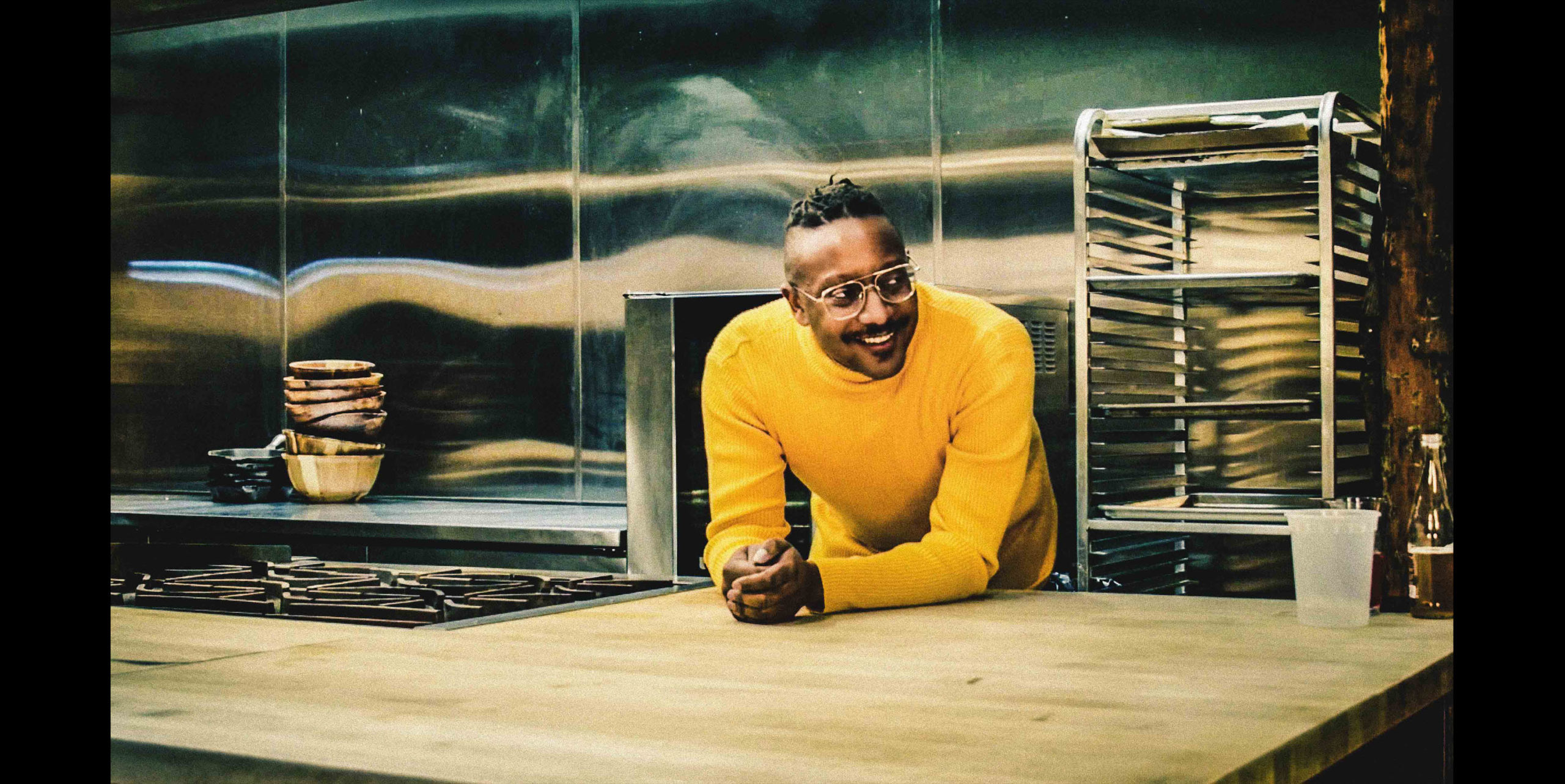
Chef Gregory Gourdet in his Kann Winter Village kitchen in Portland, Ore. Kann features Haitian and global BIPOC cuisine.
-
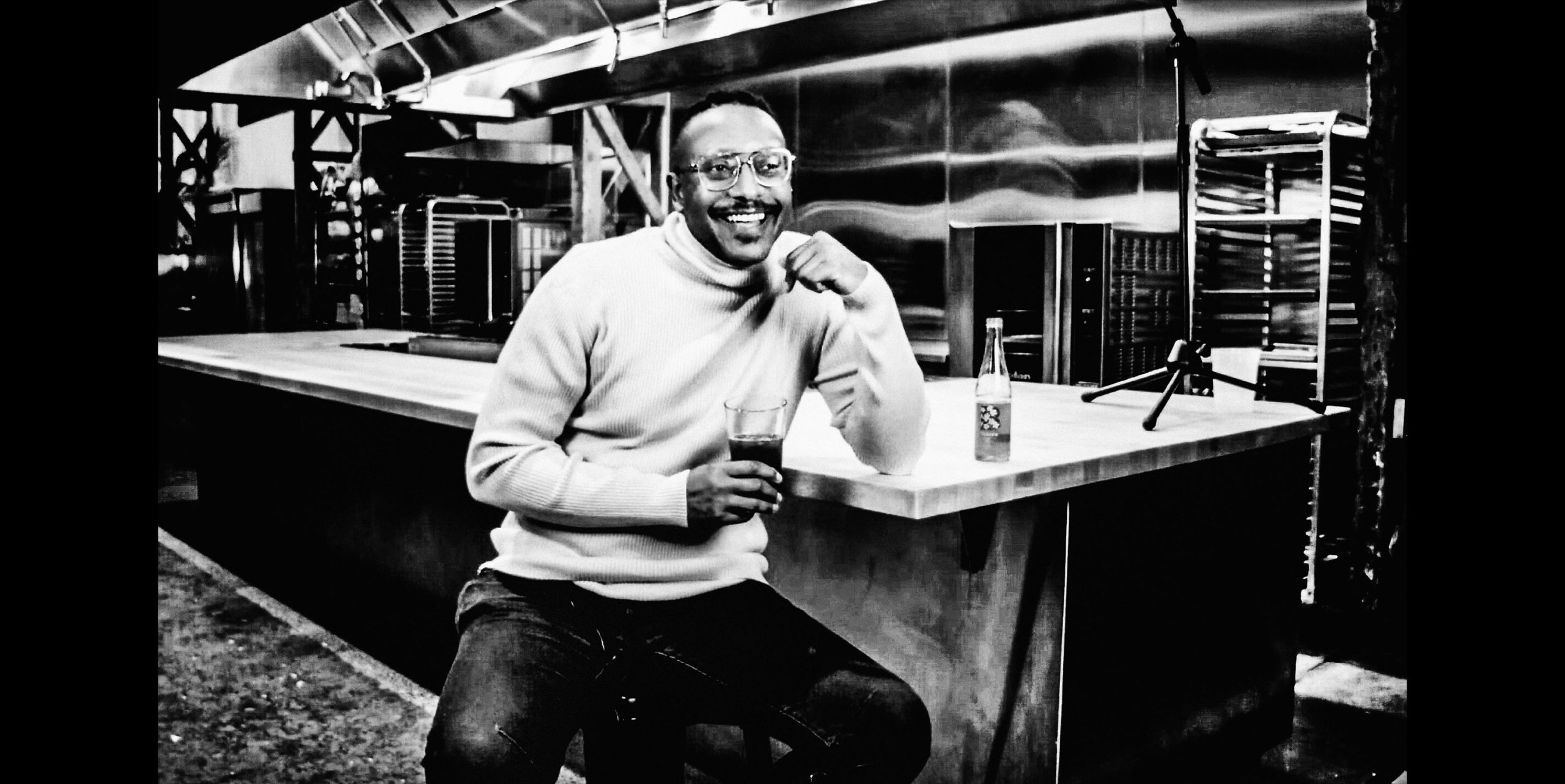
-
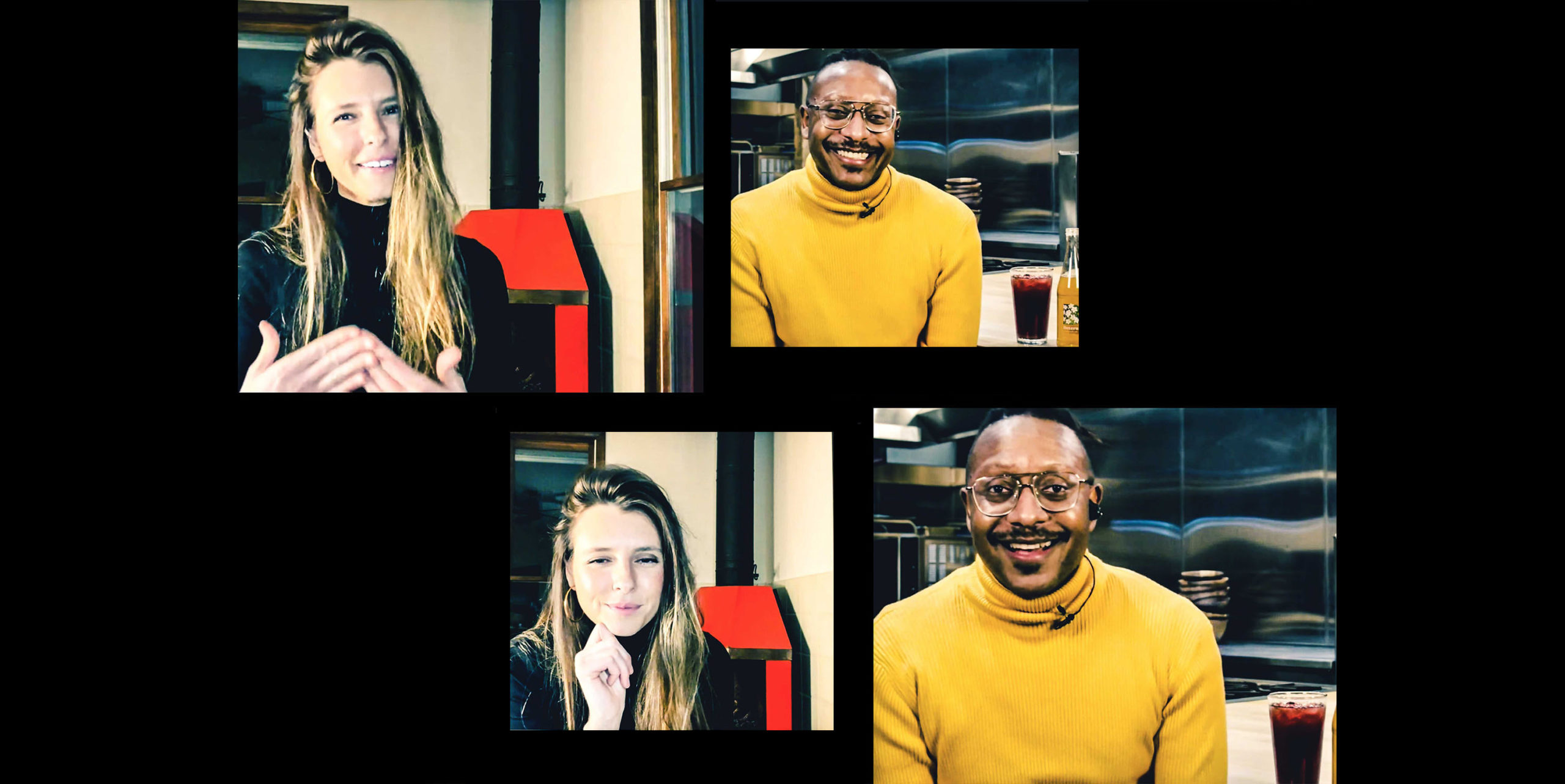
-
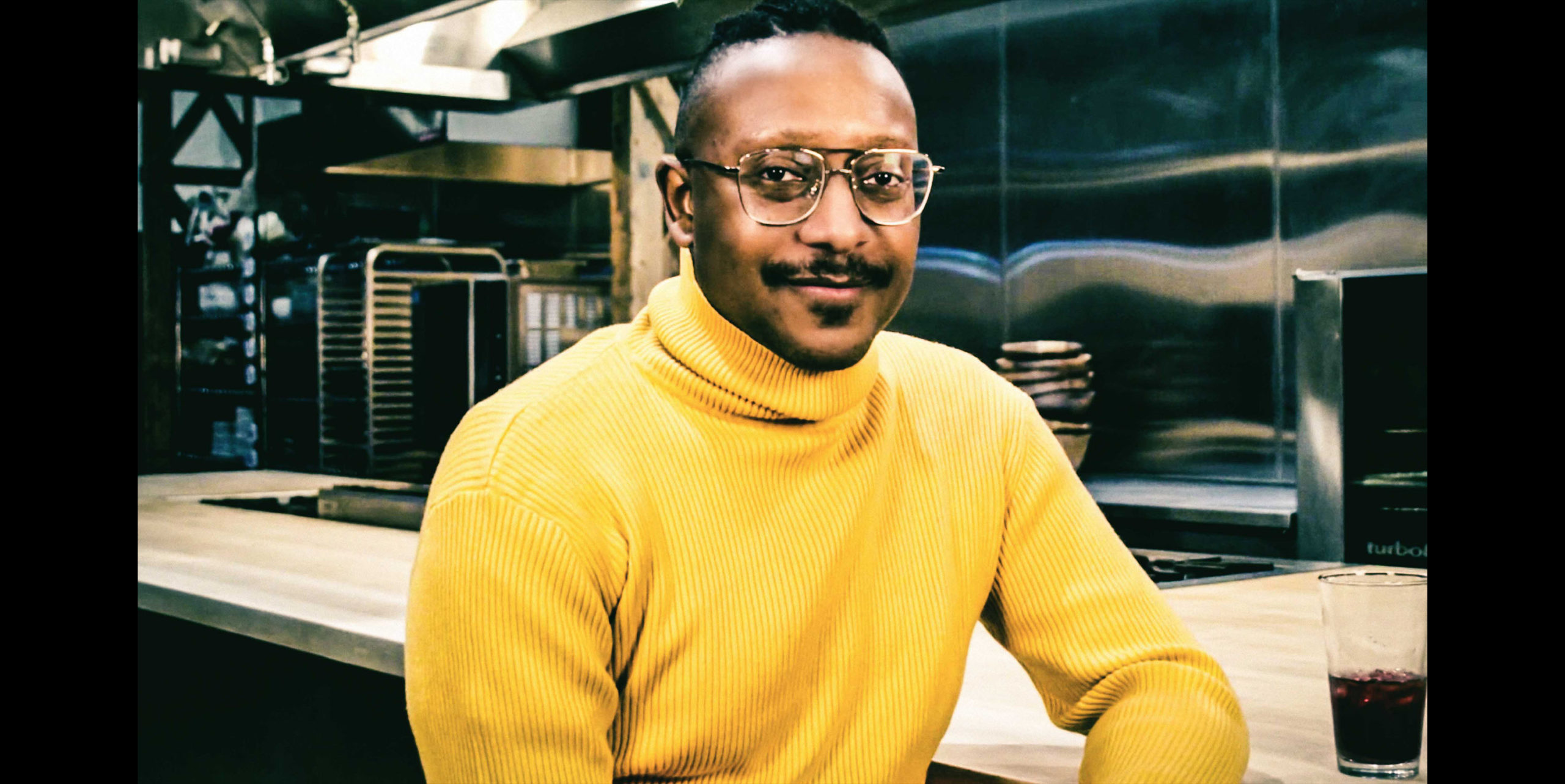
-
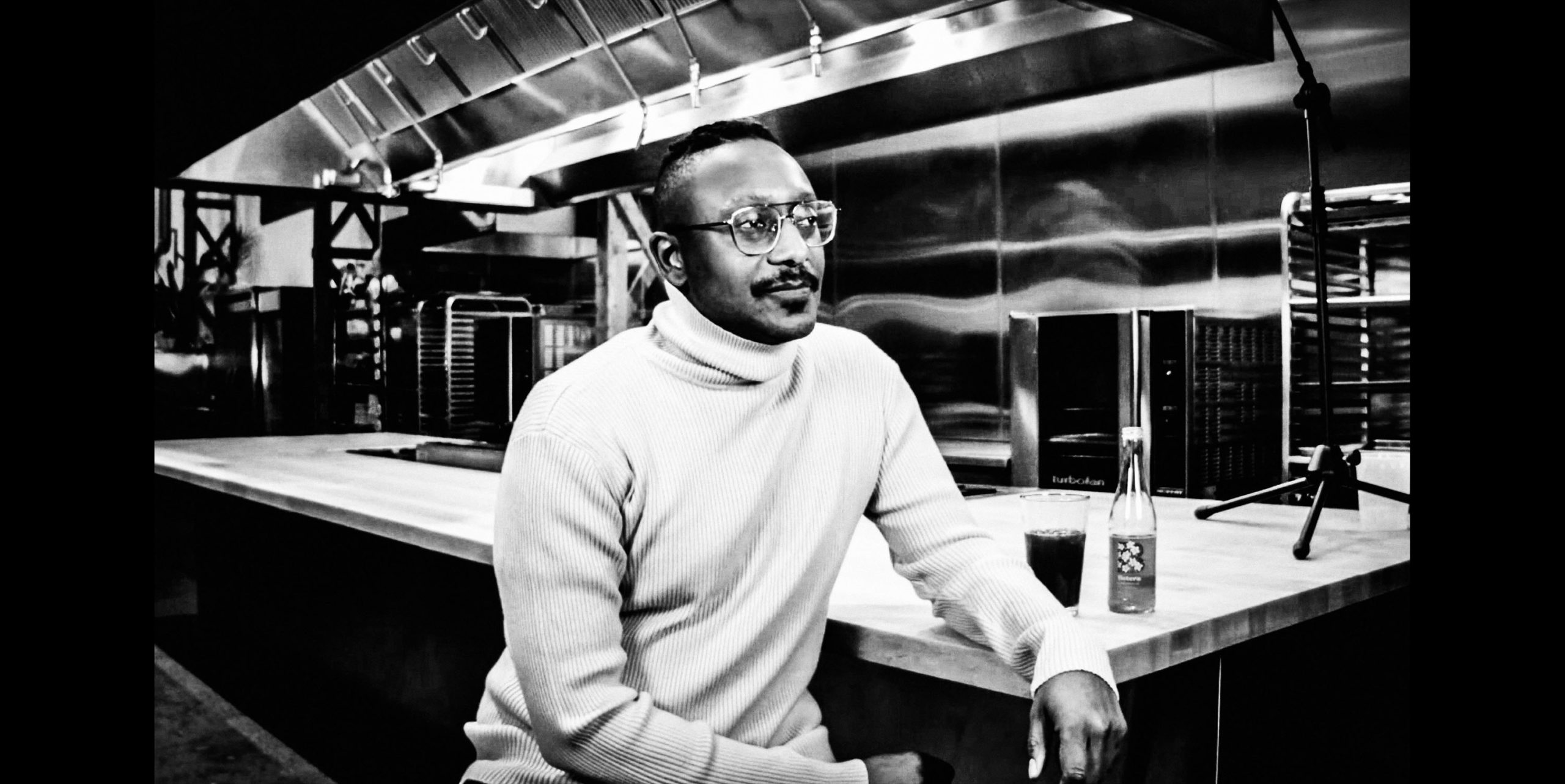
-
